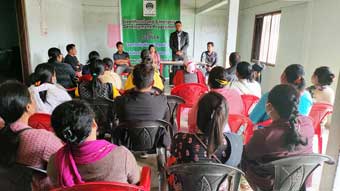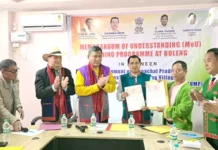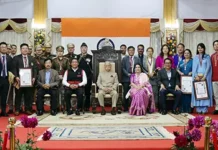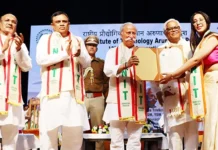NAMSAI, 24 Dec: NABARD DDM Kamal Roy launched an ‘Azolla-based livelihood enterprise and development programme (LEDP)’ here on Thursday in the presence of ArSRLM staff, the Mahadevpur Livestock FPO, SHGs promoted by the ArSRLM, and members of the Namsai Organic Spices and Agricultural Products (NOSAAP) Farmers-Producers Company (FPC).
“The project will focus on skill development training on cultivation of azolla and its value addition to 150 selected members of SHGs and livestock FPO members,” Roy informed in a release.
The project is being implemented by the NOSAAP FPC in collaboration with the ArSRLM and the Namsai KVK.
Azolla is a freshwater fern that thrives in ponds, lakes, swamps, and streams in both tropical and subtropical conditions. It can be fed to livestock in both fresh and dried form.
“Enabling SHG members to take up income generating activity for livelihood involves intensive training and handholding on various aspects, including understanding market, potential mapping and ultimately fine-tuning skills and entrepreneurship to manage the enterprise,” Roy said.
NOSAAP CEO Chau Athina Chauhai highlighted “the strategic importance of azolla and its commercial value for poultry and other livestock growers,” while the CEO of Mahadevpur Livestock FPO, Ritupon Deori highlighted the problems faced by the poultry farmers, such as low production of eggs and less efficiency of the hatchery units “due to consumption of low-quality feed by the chicks.” He expressed hope that azolla-based feed would solve the issues faced by the farmers.
Dr Homseng Chowlu, who has a PhD in livestock management, was the resource person who explained step by step the method of cultivating azolla, its management, value addition and feeding method.
“The overall objective of the LEDP is to provide the poultry farmers with self-sustainable quality feed along with commercial production of feed which will be branded by the NOSAAP Co Ltd,” Roy said.
“A demonstration unit will also be established, where the farmers will be trained and its importance can be expanded to other parts of the region,” he added.




